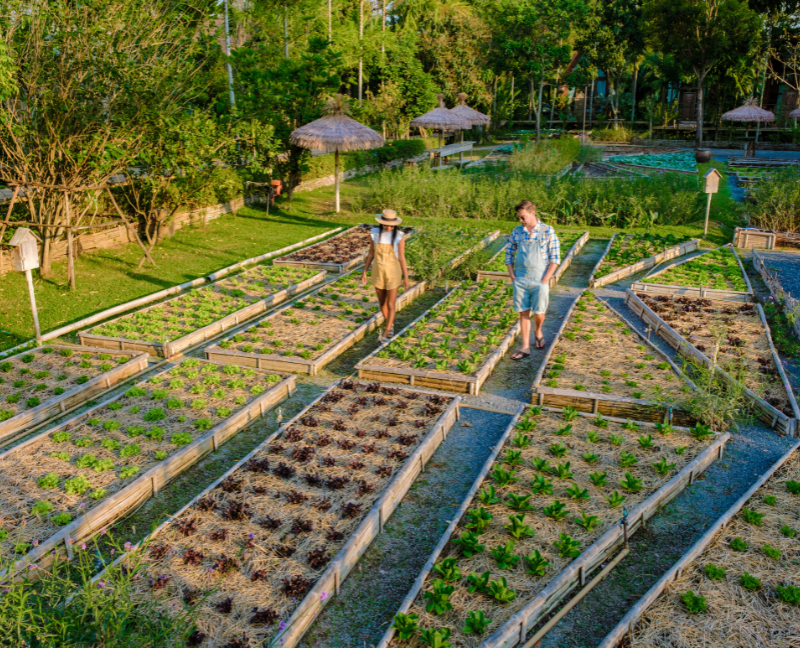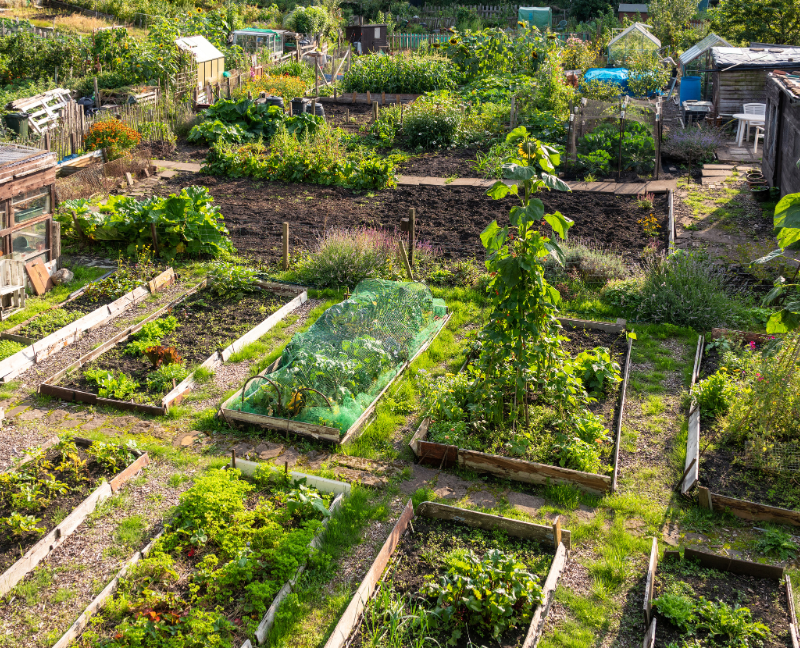Community gardens and real estate are integrating beyond greenery in metropolitan areas. Adding green spaces to real estate developments improves aesthetics and benefits people and the community as cities grow.
One crucial aspect to consider is the environmental benefits offered by community gardens. Are community gardens good for the environment? In this post, we will help you understand what community gardens do in the environment.
What Do Community Gardens Do?
"Are community gardens good for the environment?" -- that's one of the frequently asked questions about community gardens. To answer this, you must first understand what a community garden is.
A community garden is a piece of land cultivated by a group of people. Vegetables and flowers are usually grown here individually or collectively. As a result, it helps improve physical and mental health and nutrition in the community.
Urban Living's Green Revolution
A green revolution is quietly growing in urban settings with skyscrapers and busy streets. Growing concrete jungles requires additional green places. Amid urban chaos, communal gardens promote sustainability, community solidarity, and property values.
As green oases in urban settings, community gardens profoundly affect mental health, encourage sustainability through operations, and are increasingly valued as eco-amenities by real estate developers.
Community Gardens' Emotional Allure
Community gardens bring nostalgia and nature to city dwellers, providing a refuge from city life. The emotional allure of these natural areas goes beyond aesthetics, affecting well-being and belonging.
Community gardens are essential for promoting mental and emotional health, creating a sense of community by bringing people into contact with nature in urban areas, and encouraging personal growth narratives through shared gardening experiences.

Increasing Property Values: Green Spaces' Hidden Gem
Community gardens increase real estate values and resident well-being. Developers realize that community gardens can boost property prices and increasingly embrace green facilities.
Growing community gardens are being used as selling factors in marketing efforts, and the demand for homes close to green areas is a sign of beneficial effects on property values, in line with real estate trends emphasizing sustainability and green living.
Supporting The Environment And Community
Community gardens serve as a platform for sustainable practices and allow locals to cultivate their food. These green areas become centers of environmentally conscious activities that improve the environment and teach the local population sustainable living practices, such as composting and rainwater collection.
Community gardens are essential to urban farming and self-sufficiency. They promote sustainability in urban environments through educational initiatives, rainwater gathering, composting, waste reduction, and water-saving techniques.
Addressing the Real Estate-Community Garden Gap
Keeping real estate and green spaces in balance is tricky as demand rises. Collaborative urban planning efforts, encouraging developers to include green amenities, and encouraging community involvement in decision-making processes are all necessary to balance the requirements of inhabitants and the demands of real estate development.
Promoting Sustainable Urban Communities For The Next Generation
Community gardens in real estate serve emotional, social, and environmental demands in the ever-changing metropolitan setting. Green spaces and real estate create value in urban environments and a more sustainable and peaceful future.
The effects of community gardens on urban real estate include increased property values, environmental sustainability, and communal well-being. Developers are interested in how community gardens provide value, livability, and resilience to urban surroundings.
As we cross the urban jungle, you may know how these community oases affect property values and quality of life. Solutions must balance concrete with vegetation to preserve urban ecosystems for the next generations.

